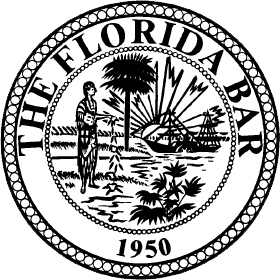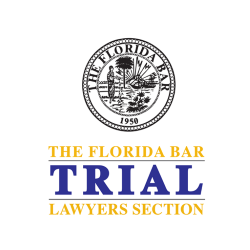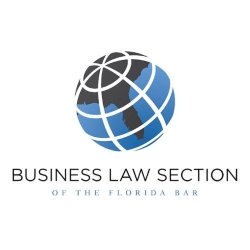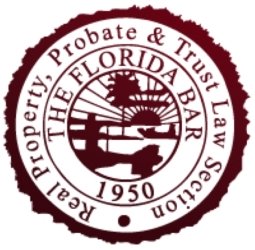Consumer Protection Laws Impacting
Florida Businesses and Citizens
There are several consumer protection laws in Florida that are written to protect businesses and citizens of Florida. Every day consumers purchase goods and services essential to modern society from countless different types of businesses. A functional relationship between businesses and consumers requires basic commercial fairness and conditions that allow both sides to benefit from a truly free market.

Unfortunately, this does not always occur in the real world. Consumer protection laws prohibit unfair, deceptive and sometimes illegal business practices. These laws protect businesses and consumers involved in many professions and areas of commerce including finance, debt collection, and credit reporting.
The Florida Deceptive and Unfair Trade Practices Act.
The Florida Deceptive and Unfair Trade Practices Act applies to a wide range of businesses and protects consumers from many practices that are considered “unfair” or “deceptive.” There is no specific definition of “unfair” or “deceptive”, so this statute protects consumers in a wide range of situations.
The remedies available to a consumer that prevails under this scenario can be considerable. A consumer that prevails under this statute is entitled to recover actual damages, statutory damages, attorney’s fees and injunctive relief in appropriate circumstances.
The classic example of a deceptive trade practice is the “bait and switch”; when a salesperson entices a consumer with an advertisement or solicitation promising one bargain, then when the consumer inquires further about purchasing the bargain product, the consumer is informed that the bargain product is no longer available for one reason or another, but there is a more expensive product which the consumer can purchase instead.
Another example is when a contractor over promises performance in order to get the contract, such as a building contractor promising completion of construction of a home within a short period of time without any realistic expectation of actually completing the work when promised.
Consumer protection laws can also play a role in Florida foreclosure laws. For example, the Florida Attorney General’s office sued Countrywide Home Loans Servicing, Inc. under the Florida Deceptive Trade Practices Act. The Attorney General alleged that Countrywide engaged in deceptive and unfair trade practices by explicitly or implicitly representing that borrowers were qualified for certain loans by granting approval for those loans, when the borrowers should not have been approved for the respective loans.
The Federal Truth In Lending Act, the Homeowner’s Equity Protection Act, and the Florida Fair Lending Act.
The Federal Truth In Lending Act, the Homeowner’s Equity Protection Act and the Florida Fair Lending Act are statutes that require certain disclosures to be made to consumers in credit transactions. These statutes also prohibit a number of practices in certain specific credit transactions.
The Federal Truth In Lending Act applies to a number of different types of credit transactions, including a finance purchase of an automobile and mortgages on real estate. The Act requires that consumers are provided with certain disclosures at the time of purchase or “closing”, including specific charges imposed by the lender and the actual interest rate charged for the loan.

The Homeowners Equity Protection Act and The Florida Fair Lending Act are an extension on the Truth In Lending Act that apply to “high-cost” loans. “High-cost” loans, or a high interest loans, are more restricted and require additional disclosures to consumers.
Violations of these statutes can have serious consequences. A consumer that is able to prove a violation or a material error under the statute is entitled to recover their actual damages, minimum statutory damages, attorney’s fees and in some cases “rescission”, or cancellation, of the loan.
The Federal Fair Debt Collection Practices Act and the Florida Consumer Collection Practices Act.
The Fair Debt Collection Practices Act and the Florida Consumer Collection Practices Act are Federal and state statutes that limit what creditors and debt collectors can do or say when trying to collect money for outstanding debts. These limits are placed to prevent debt collectors from using deceptive and illegal practices to force consumers to pay for debts due to fear or intimidation.

These statutes prohibit creditors and debt collectors from making harassing phone calls and communicating information about your debt to other parties. It is also a violation of these statutes for debt collectors to contact consumers at their work without permission from the consumer. Creditors are also required to report to credit agencies if you dispute the validity of your debt.
The failure to comply with this statute can result in creditor liability for actual damages, statutory damages, and even punitive damages if the Court deems the violations egregious enough to deserve it. If you have outstanding debt, it is to your advantage to know what these limits are so you can protect yourself from predatory collection practices.
The Fair Credit Reporting Act.
Companies offering credit cards are limited as to the number and amount of fees they can charge you in a variety of situations. Credit reporting agencies must follow federal guidelines to ensure your reports are accurate and fairly reflect your credit history. Without consumer protection laws, credit cards would be far more expensive to use, and correcting a mistake on your credit report would be far more difficult.
Contact us today for a free consultation with Florida litigation attorney Justin R. Payne to discuss how these and other consumer protection laws may apply to you.
Florida litigation attorney Justin R. Payne has years of intensive experience litigating cases involving many different consumer protection laws on behalf of businesses and consumers. Contact The Law Offices of Justin R. Payne, P.A. for a free consultation to discuss how these and other consumer protection laws may apply to any business or commercial dispute you may be involved in.
Related pages you may be interested in:
- Florida Consumer Protection
- Florida Commercial Litigation Attorney
- Florida Foreclosure Attorney
- Florida Foreclosure Laws
- Foreclosure Defense Attorney





Cocoa Foreclosure Attorney -Consumer Protection Laws - Florida Commercial Litigation Attorney - Florida Consumer Protection - Florida Foreclosure Attorney - Florida Foreclosure Laws - Florida Foreclosure Procedure - Florida Real Estate Attorney - Foreclosure Defense Attorney


